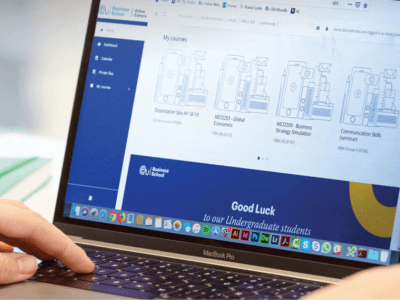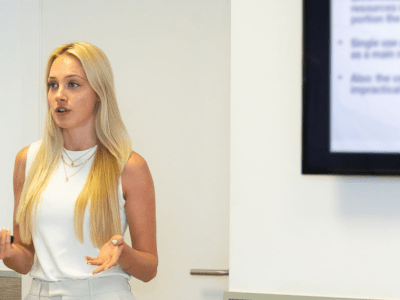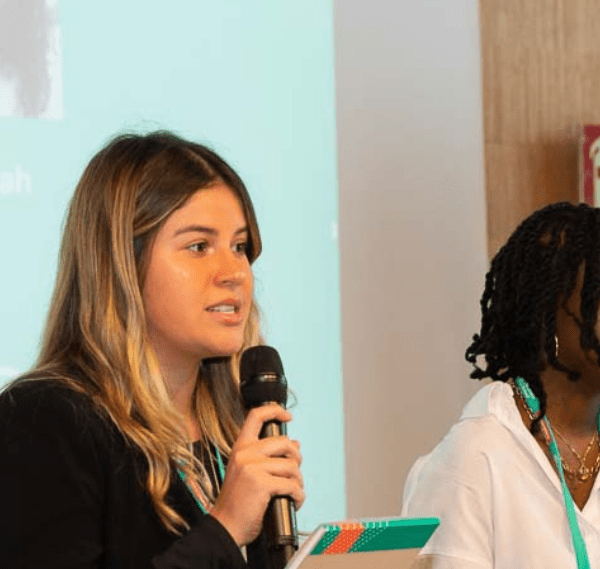5 Women Closing the Diversity and Inclusion Gap
In recent years, the topics of diversity and inclusion have taken center stage in the corporate sector. A growing number of companies are committing to addressing issues of workplace diversity. And there have been many positive outcomes. The gender gap, in particular, has steadily diminished over the last several decades.
Despite these trends, however, there is still much be done. All over the world, employees face corporate discrimination, both indirect and explicit, because of their sex, skin color, culture, gender and a whole host of other factors.
In this post, EU Business School looks at five female leaders who have dedicated their working lives to closing the global diversity and inclusion gap.
What Is the “Diversity and Inclusion Gap”?
The phrase “diversity gap” refers to a worldwide phenomenon with a large body of associated data-backed evidence, such as research by the World Economic Forum into the global gender gap. Diversity can be understood in terms of any of several differentiators, including race, culture, gender, age and more.
In a corporate setting, the “diversity gap” encompasses a range of disparities between members of separate groups, particularly in relation to race and gender. These disparities – whether measured by workforce make-up, economic outcomes like salaries, or access to opportunities – are particularly notable when they are not commensurate with the distribution of the broader labor market and levels of skill and experience.
Whatever indicator is used, studies show that diverse workforces are of comparatively higher value to companies when judged against non-diverse, largely homogeneous workforces.
1. Ellen Pao, CEO of Project Include
Project Include’s mission is to promote diversity in the tech space, which has historically suffered from comparatively low levels of inclusion. Project Include works with tech company CEOS to implement comprehensive, lasting solutions that ensure greater levels of inclusion and corporate responsibility for the long-term.
Ellen Pao, who currently works as the CEO of Project Include, is an investor and former CEO of Reddit. She is also one of the most vocal critics of hiring and promotion practices in Silicon Valley. Her book “Reset: My Fight for Inclusion and Lasting Change” was shortlisted for the Financial Times and McKinsey Business Book of the Year Award.
2. Aniyia Williams, Executive Director of Black and Brown Founders
Aniyia Williams founded Black and Brown Founders during an entrepreneurship residency at Code2040. The organization runs several initiatives that provide people of color and members of ethnic minorities with the business resources they need to launch successful companies.
When you consider that only 2% of venture capital in the United States ends up in the hands of Black and Latinx entrepreneurs, the need for freely-available information about how to launch startups without outside investment becomes all the more apparent.
Black and Brown Founders disseminates business resources through a mixture of in-person events, virtual conferences and online training.
3. Natalia Oberti Noguera, CEO of Pipeline Angels
Pipeline Angels, a company headed by CEO Natalia Oberti Noguera, works with over 400 angel investors who create capital for trans women, cis women, nonbinary, two-spirit, agender and gender non-conforming founders. To date, investor members of Pipeline Angels have contributed more than six million dollars to over eighty companies while also acting as a supportive community for dozens of entrepreneurs at critical stages of their business journeys.
Natalia Oberti Noguera, who studied comparative literature and economics at Yale and was selected by Inc. magazine as one of The Most Impressive Women Entrepreneurs of 2016, is helping to change the angel investing landscape by creating opportunities for groups that have traditionally struggled to acquire capital.
4. Aruna Rao, Co-Founder of Gender at Work
Gender at Work is an international NGO that works to end gender discrimination and consults with businesses to implement inclusivity-supporting structures. One of its primary focuses is the dissemination of knowledge about progressive corporate systems that foster gender equality. Gender at Work and its associates’ network have started various initiatives, encompassing training resources, consulting services, courses, policy development, podcasts and more.
Gender at Work was founded by Aruna Rao. Rao is an expert in the fields of gender and development and has spent over thirty years helping institutions make deep-rooted and lasting shifts. She has written several books on the topics of gender inclusivity and organizational change.
5. Tina Tchen, President and CEO of Time’s Up
Time’s Up is a not-for-profit, nonpartisan charity that “aims to create a society free of gender-based discrimination in the workplace and beyond.” At its core, Time’s Up is focused on cultivating workplace environments where all employees have equal economic and social opportunities, irrespective of ethnicity, gender, religion, race, sexuality and so on.
Time’s Up focuses on three areas to achieve its mission of driving positive change: culture, companies, and laws and policy. To this end, the organization has launched several initiatives, including a legal defense fund and a research department.
Tina Tchen is the President and CEO of Time’s Up. A lawyer by profession, she previously worked as the Chief of Staff to First Lady Michelle Obama and headed numerous programs for advancing gender equality while at the White House.
Use Your Passion for Business to Make a Positive Difference
If you felt inspired after learning about the women’s stories in this post, you could be destined for a business career. Whether you see yourself working for a well-known enterprise or non-profit, or perhaps at the head of your own organization, EU Business School can provide you with all the skills, experience and practical knowledge you need to thrive in your chosen field.
We offer a wide range of business qualifications, including Bachelor’s, Master’s and MBA programs, along with several foundation and business bridging courses. Students will also have the opportunity to study at one of our centrally located campuses, which are all situated in European business capitals like Barcelona, Geneva and Munich.










